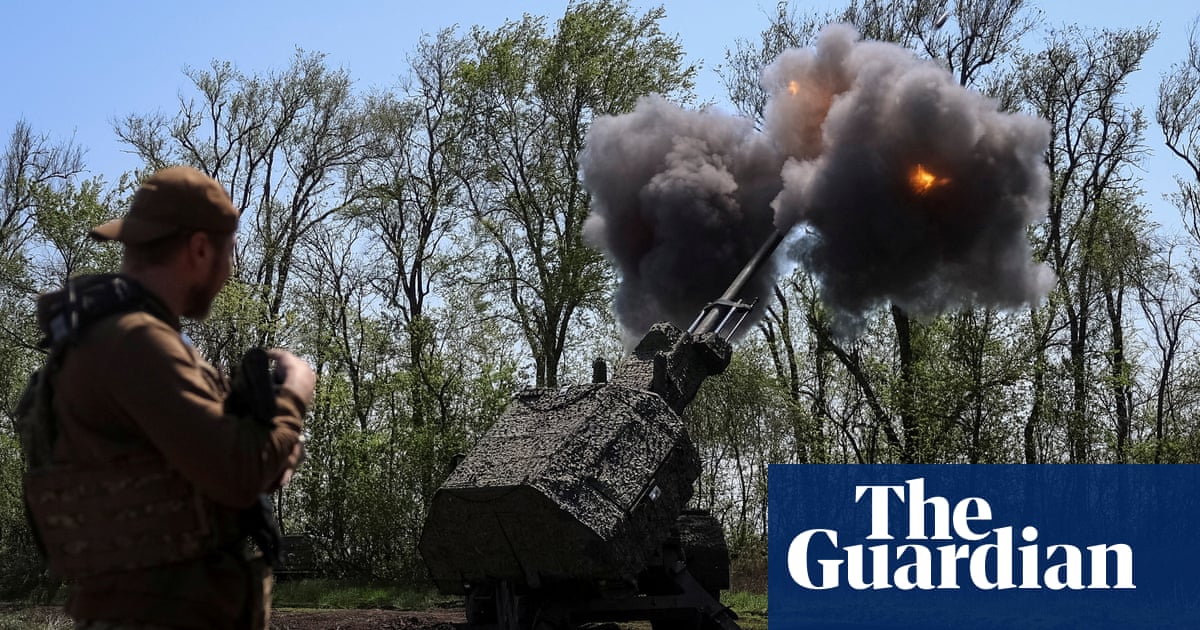Ukraine hopes to receive 3m artillery shells from allies and partners in 2025 including 1.8m under a Czech-led programme, Volodymyr Zelenskyy saidin Prague on Sunday. “The Czech artillery initiative is working brilliantly,” the Ukrainian president said. Prague steers a European drive to supply artillery ammunition to Ukraine, financed largely by Nato allies. “Not only North Korea is capable of helping [Russia] in the war – we have allies who are helping Ukraine,” Zelenskyy said incomments reported by the Kyiv Independent.
Zelenskyy added there would be ameeting on Monday with “Czech defence companies”, with details to be announced later. Discussions were under way for aUkrainian-Czech pilot training school for F16 fighter jets, which could not be established in Ukraine “due to current security concerns”.
Zelenskyy spoke alongsidePetr Pavel, president of the Czech Republic and a former Nato general, who said that “Putin can end the war with a single decision but he has not shown any willingness so far”. The Czech prime minister, Petr Fiala, and the speakers of both parliament chambers said they would meet Zelenskyy in Prague on Monday.
Ukrainian forces struck an electrical equipment factory in Russia’s Bryansk regionclose to the border with Ukraine, destroying much of the plant, said the local governor, Alexander Bogomaz. Ukraine said the factory specialised in theproduction of electronics for Russia’s defence industry. “According to preliminary information, the Strela factory in Suzemka, Bryansk region, is no longer operational following the strike,” said Andriy Kovalenko, head of the government’s Centre for Countering Disinformation. Mash, a Telegram channel with links to Russia’s security services, said the factory produced electrical equipment and was hit by a Grad rocket system.
Air defence destroyedfour Ukrainian drones flying towards Moscow, the mayor of the Russian capital said early on Monday.
Zelenskyy said on Sunday that he did not believe Putin would adhere to a self-declared three-day truceto coincide with Russia’s “victory day” celebrations on 9 May. “This is not the first challenge, nor are these the first promises made by Russia to cease fire. We understand who we are dealing with, we do not believe them.” Citing a military report, he said Russia had carried out more than 200 attacks on Saturday, “so there is no faith [in them]”. Zelenskyy said, though, that aceasefire with Russia was possible at any momentand called on Kyiv’s allies to apply greater pressure on Moscow otherwise Putin would take no real steps to end the war.
The Guardian’s Shaun Walker has investigated howMoscow is using “disposable people” recruited onlineto carry out sabotage, arson and disinformation campaigns in Europe – sometimes against specific targets related to support for the Ukrainian war effort, but more often simply to cause chaos and unease. While some know exactly what they are doing and why,others do not realise they are ultimately working for Moscow.
TheRussian president, Vladimir Putin,said in comments broadcast on Sunday said that the need to use nuclear weapons in Ukraine had not arisen, and that he hoped it would not,writes Angelique Chrisafis. Putin said Russia could bring the conflict in Ukraine to what he called a “logical conclusion … There has been no need to use those [nuclear] weapons … and I hope they will not be required.”
